Ziggu's Homebuyer Survey Results
In this blog we give a short summary about the first Belgian Real Estate Trust Barometer that was published by WES Research. The report showed that 42% of Belgians have little or no trust in the real estate sector.
In this blog we give a short summary about the first Belgian Real Estate Trust Barometer that was published by WES Research. The report showed that 42% of Belgians have little or no trust in the real estate sector.

At the end of 2016, the first Belgian Real Estate Trust Barometer was published by WES Research. The report showed that 42% of Belgians have little or no trust in the real estate sector. The report outlines the general sentiment in the real estate industry as a whole. Unfortunately, but somehow unsurprising, the two least trusted parties in the industry appear to be the realtor and the real estate developer.
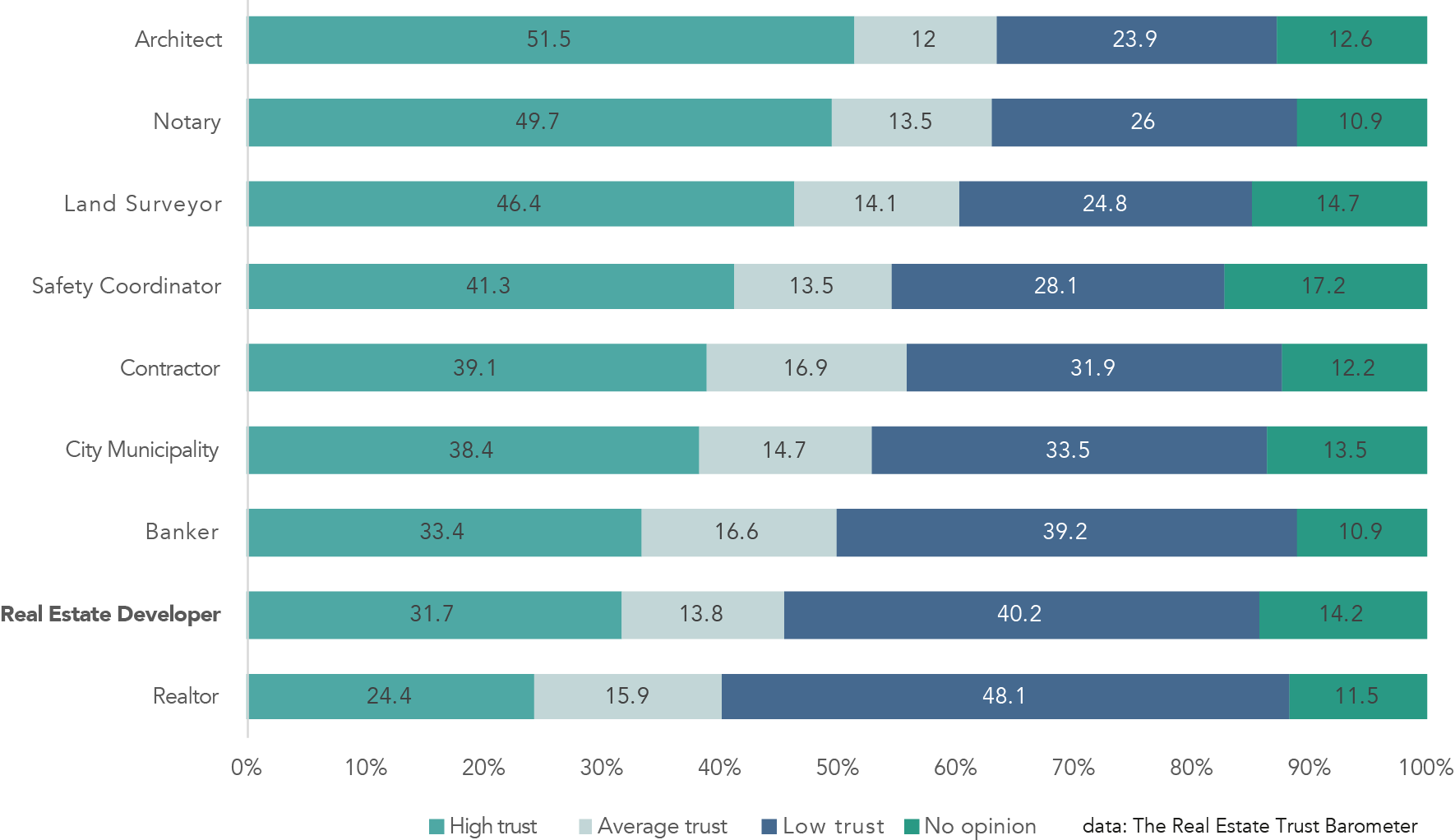
It’s one thing to know that you are one of the least trusted parties in the real estate industry, it’s another thing to know why people distrust you. Which is why we conducted our own survey. We interviewed 400 homebuyers living in newly built neighbourhoods constructed by real estate developers. What follows is a quick summary of our key learnings.
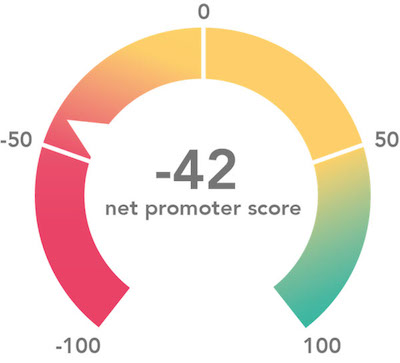
The Net Promotor Score of -42 basically confirms the level of distrust placed in real estate developers. It pains us to see this result because in all our interviews with property developers across Europe we meet very engaged professionals that want to create awesome products and are very concerned with customer experiences. Ziggu’s mission is clearly to change this misconception and we commit ourselves to regularly hold similar surveys until we see acceptable customer satisfaction rates and high NPS scores in our sector.

Flemish people on average need about three sales meetings before they decide to buy a house or apartment. The average sales lead time from first contact to closing is about a month. It’s usually a very intense period with lots of interaction between the customer and the sales team. A returning complaint is that after a sale has been closed, that level of interaction between the customer and the real estate developer seems to drop to a low point or becomes nearly non-existant. The sector really needs to thoroughly think about ways to keep that level of interaction on the same level as during the sales process itself.
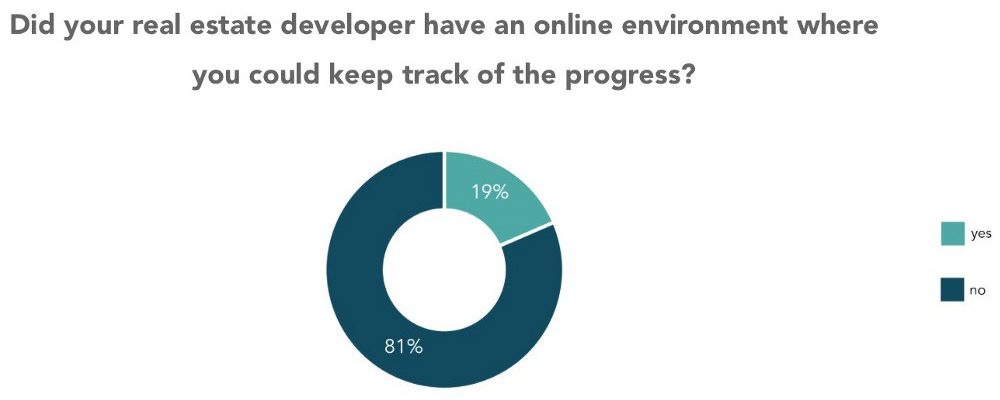
We live in a world where we can order a paperclip online somewhere in China and track it step by step until it reaches our front door. Some systems even allow you to see where your delivery driver is currently located. But when you put down your life’s savings into a home, only 19% of buyers indicate they had access to an online environment where they could track progress. A paperclip can be delivered in a matter of days. Construction of a house could take years however. Which makes it all the more important.
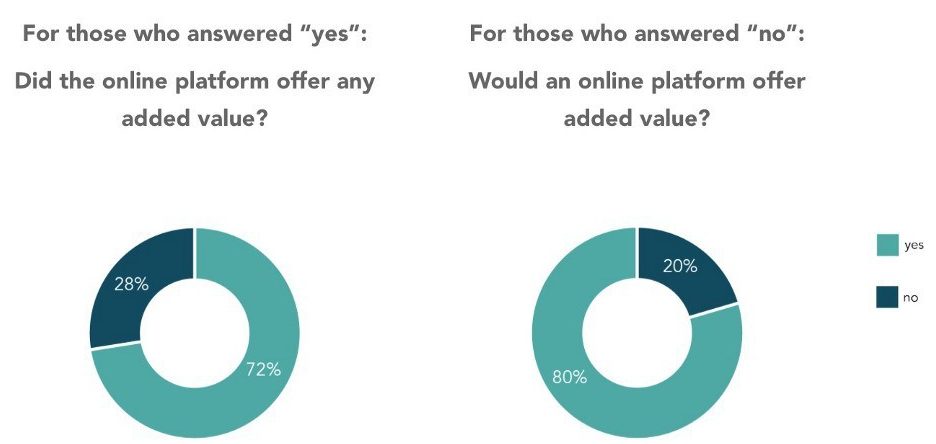
Those who did had access to an online environment clearly saw the added value of being able to track progress. Although, when we asked more about the existing platforms, it became clear that the focus was often on the wrong set of features, missing the essential ones the home buyer really needed. Which could help explain why 28% believed they did not add any value.
For those who did not have access to an online environment an overwhelming 80% clearly saw the added value of having one.

Finally, we noticed an increase of satisfaction from interviewees that did have access to an online environment. Which makes absolute sense of course. People have a strong desire to be part of the process and be included in feedback loops.
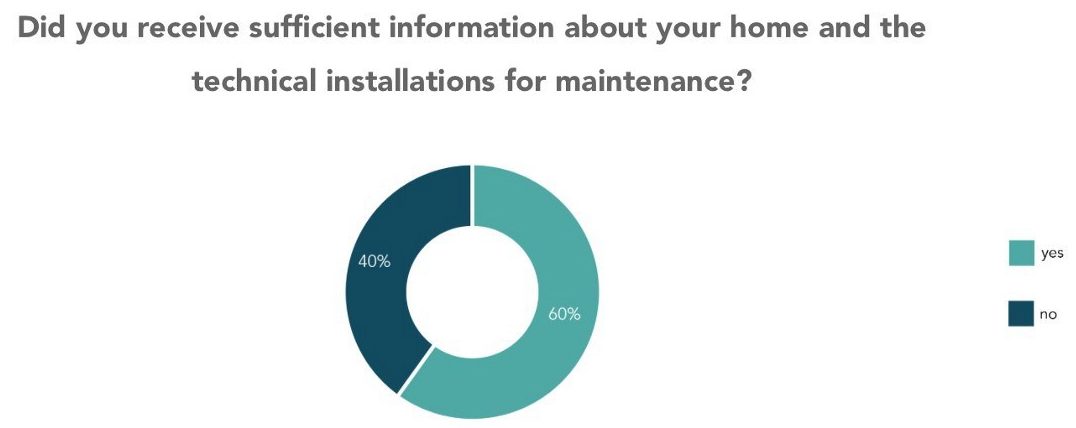
Another pain point seems to be the level of understanding technical equipment installed in the home. Manuals get lost all the same and a one-time explanation in person is easily forgotten. Our homes are becoming ever more technology infused. The rise of sophisticated indoor climate control systems, Internet of Things hardware and smart home applications brings us ever higher levels of comfort and enjoyment. But a large portion of homebuyers are struggling with maintaining and operating them.
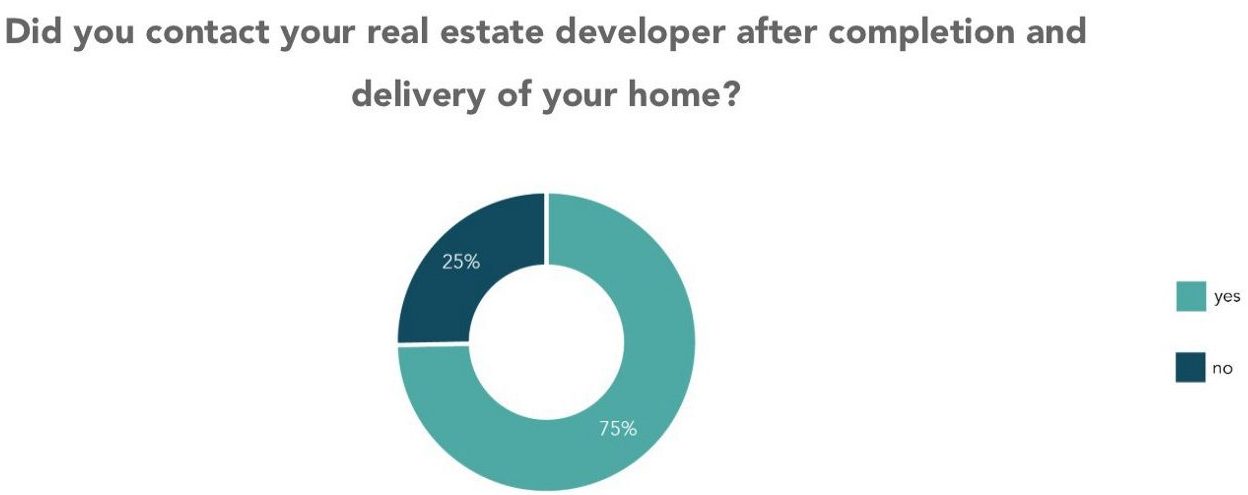
We need to remember that the way we build in Belgium and most parts of Europe by extension is a complex, diverse way of building that offers a lot of flexibility. Every building, every design, is a ‘prototype’. The exact same building has never been built somewhere before. This adds to the richness of our built environment, but it’s easy to imagine this process is also more error prone than standardised products. So of course a large number of homebuyers still contact their real estate developer after completion for minor or major issues that still need to be fixed. It’s hard to keep track of this because of all the different suppliers, contractors and architects that might be involved and it’s a cause for a lot of grievances of homebuyers.
Unfortunately we need to confirm the initial finding by WES Research. Buying a home today is often a stressful experience and people often feel left in the dark. On the other hand, the complexity of managing several large projects with hundreds of different customers, architects, contractors, engineers and suppliers is prone to human mistakes and construction errors. Real estate developers are struggling with managing that complexity. They feel that they don’t have the right toolset to deal with these problems. Our mission at Ziggu is to help mitigate these problems. Contact us at info@ziggu.io to find out how we can help!